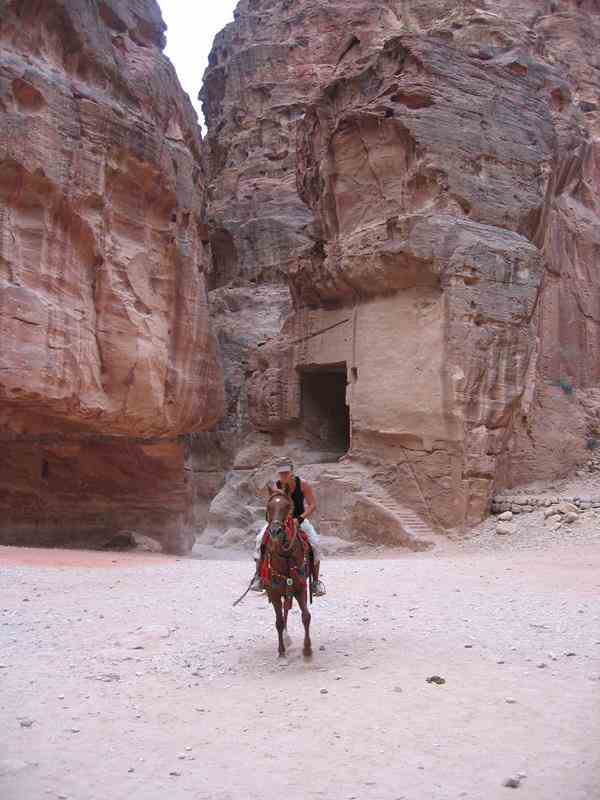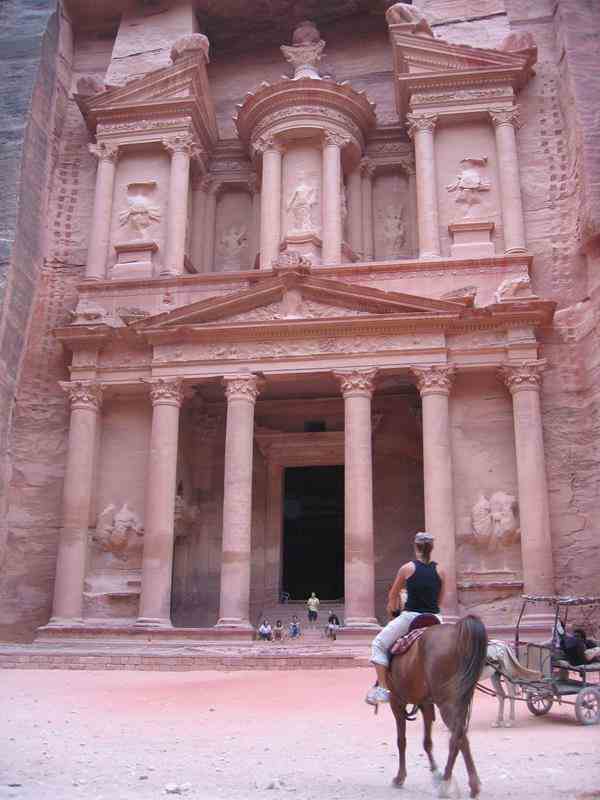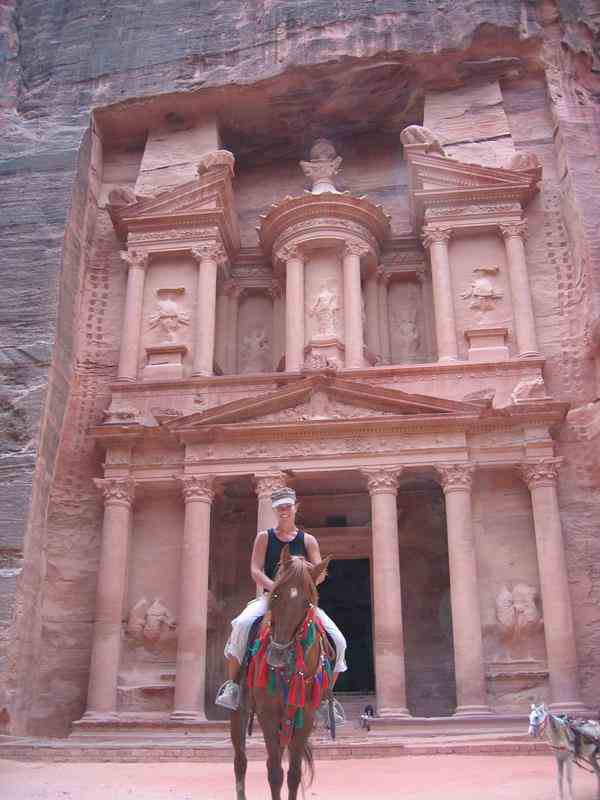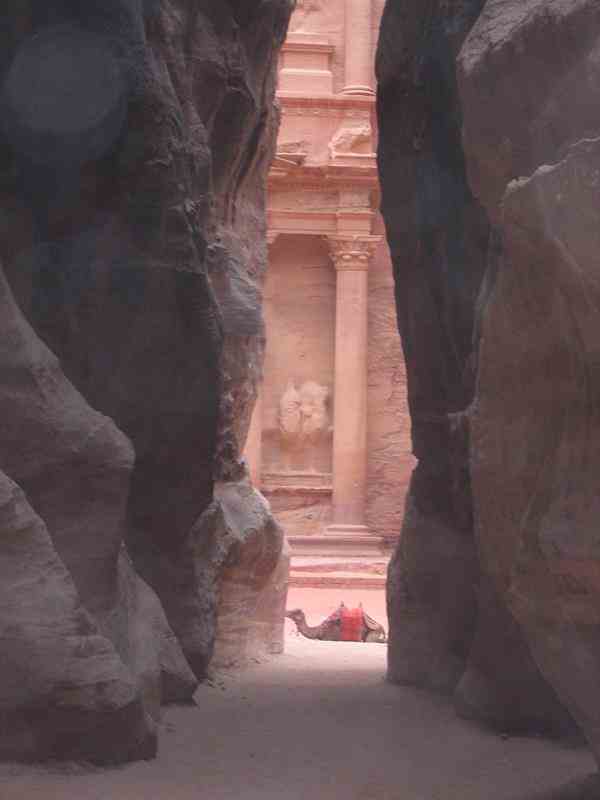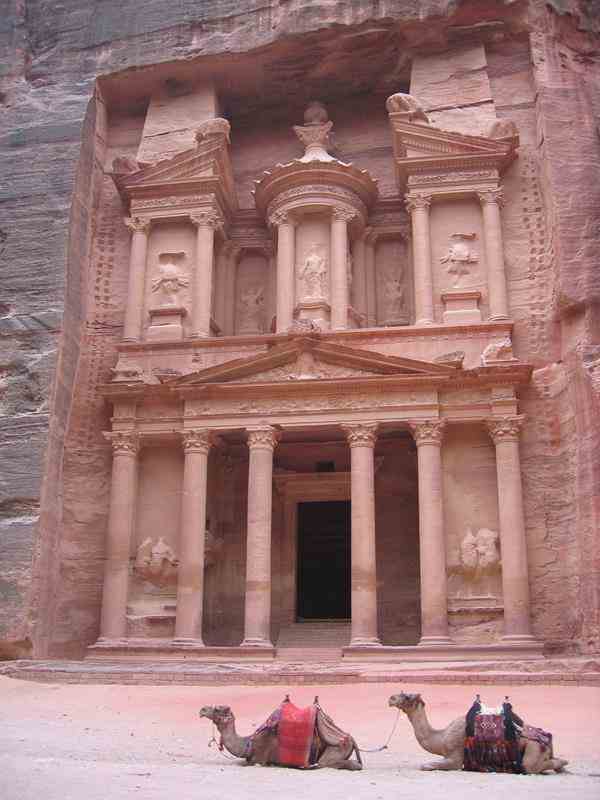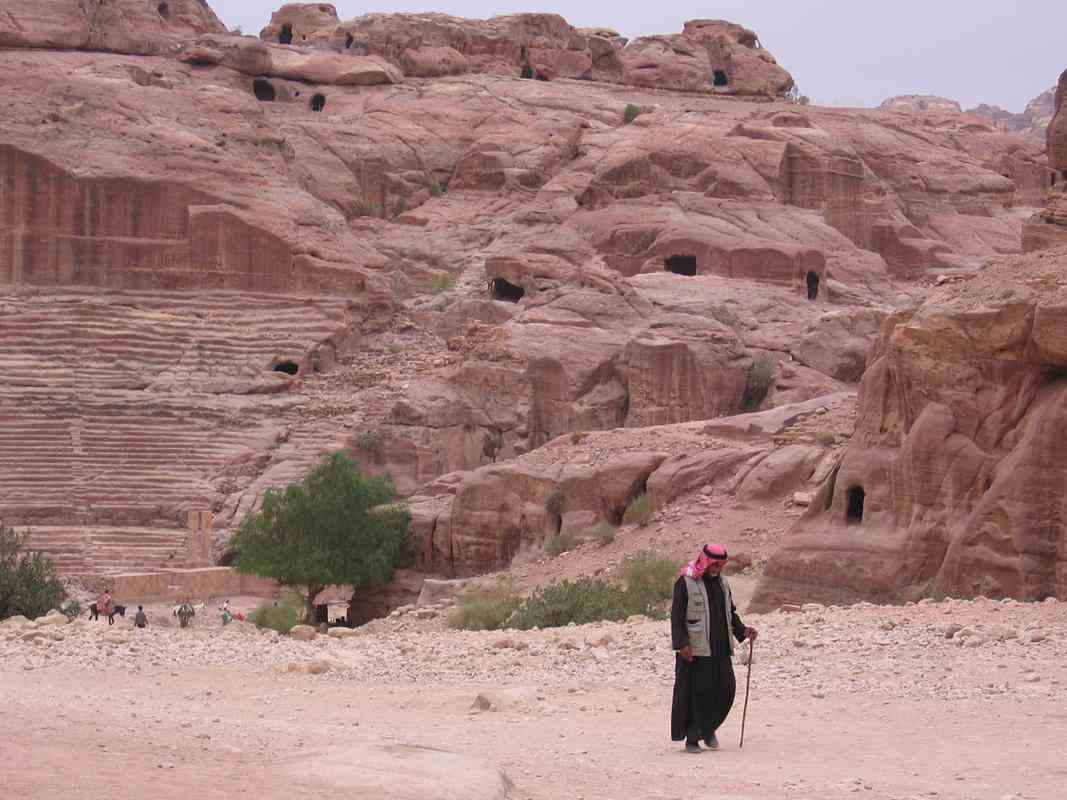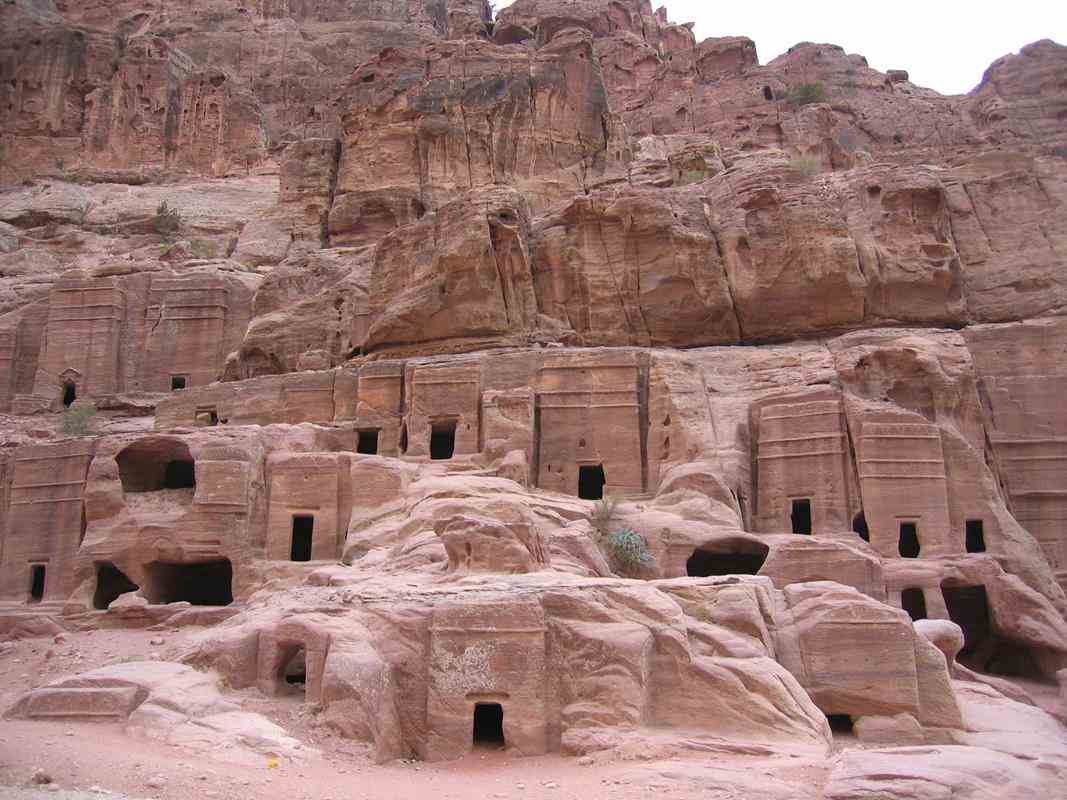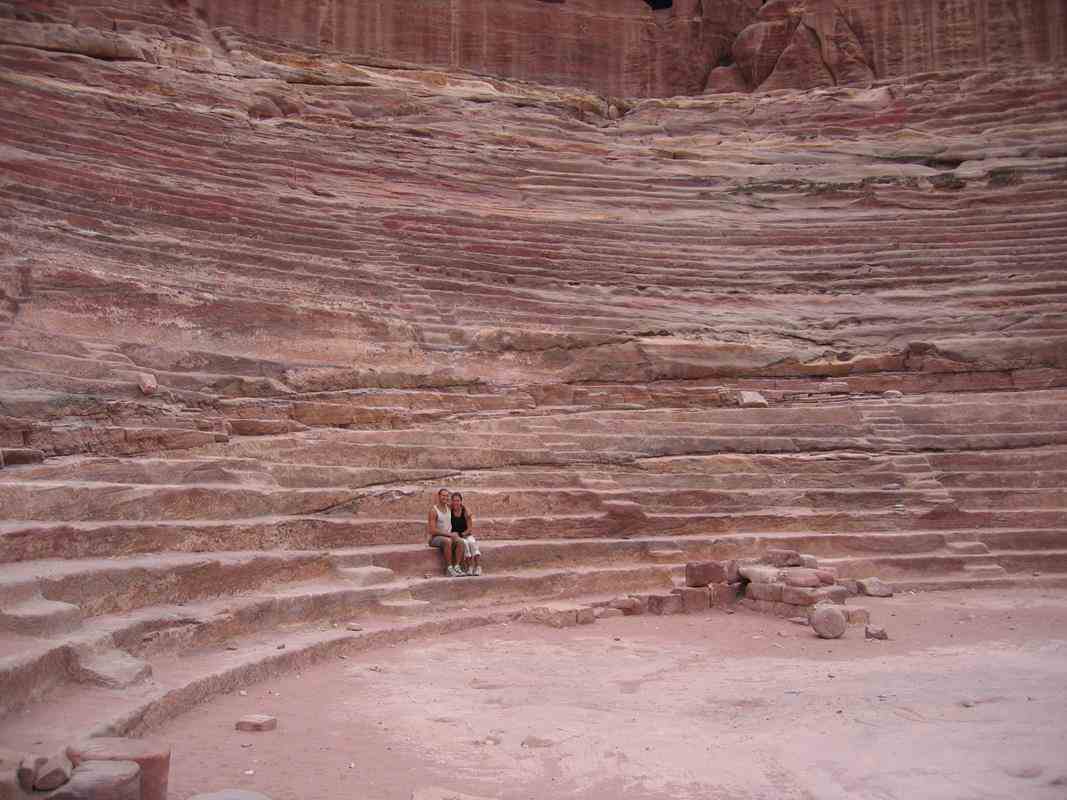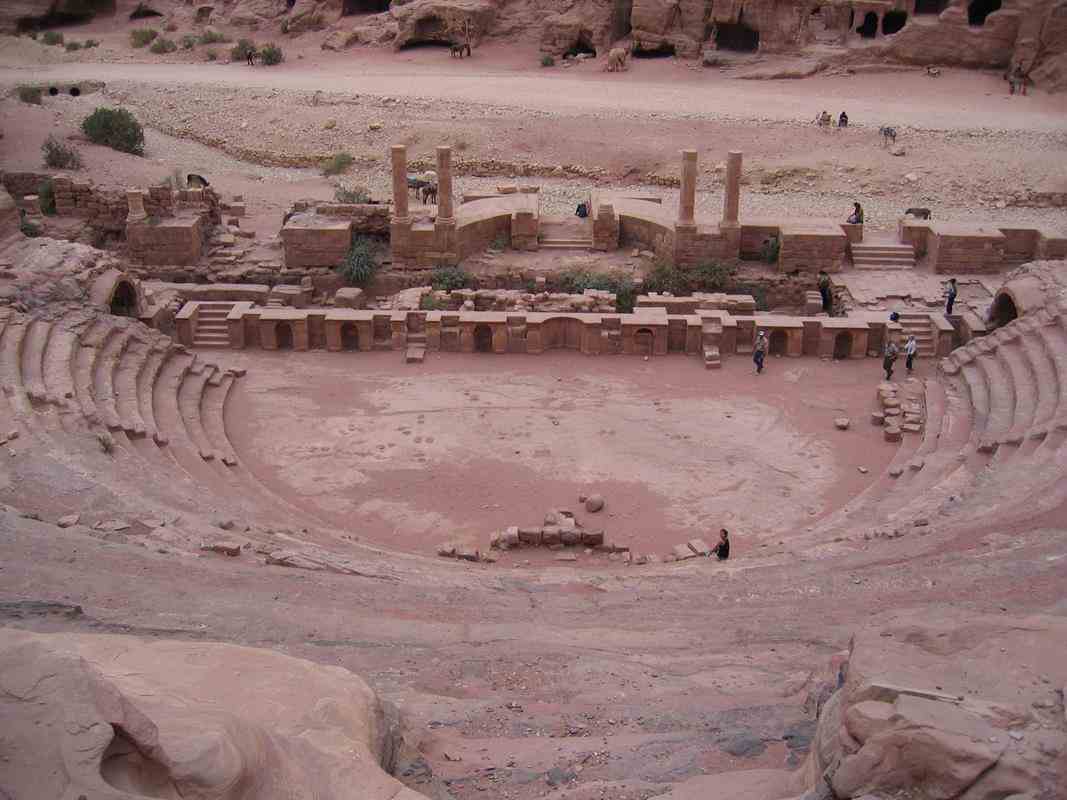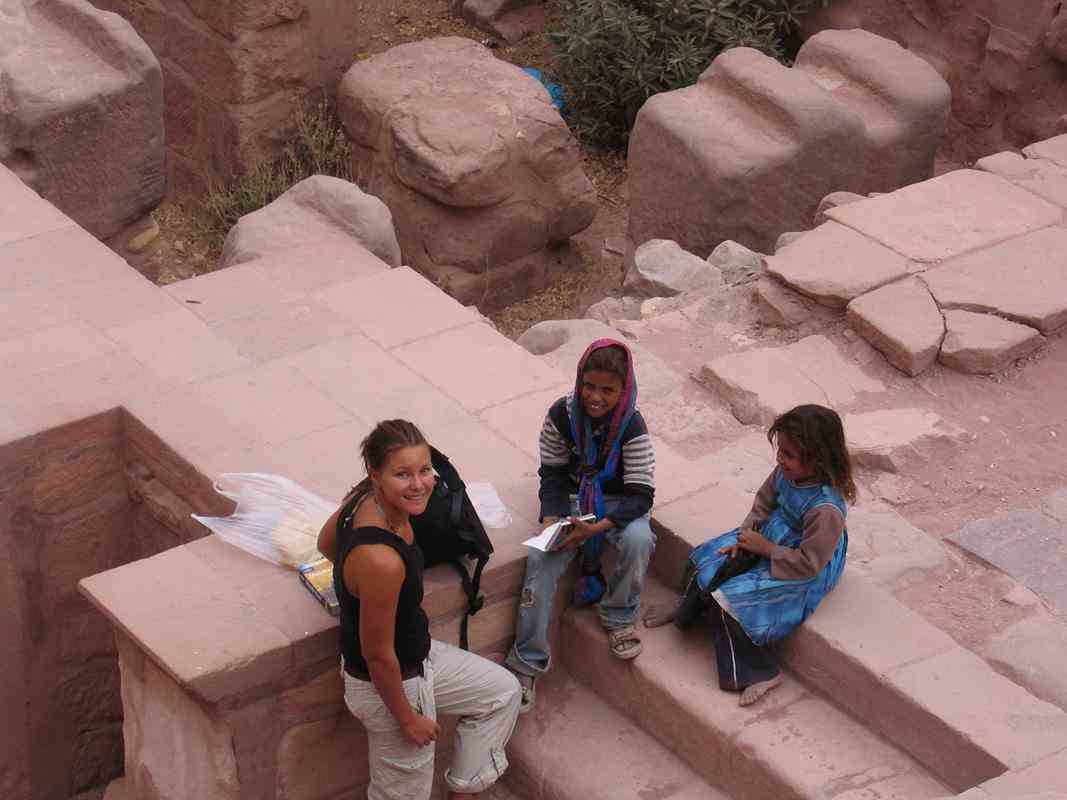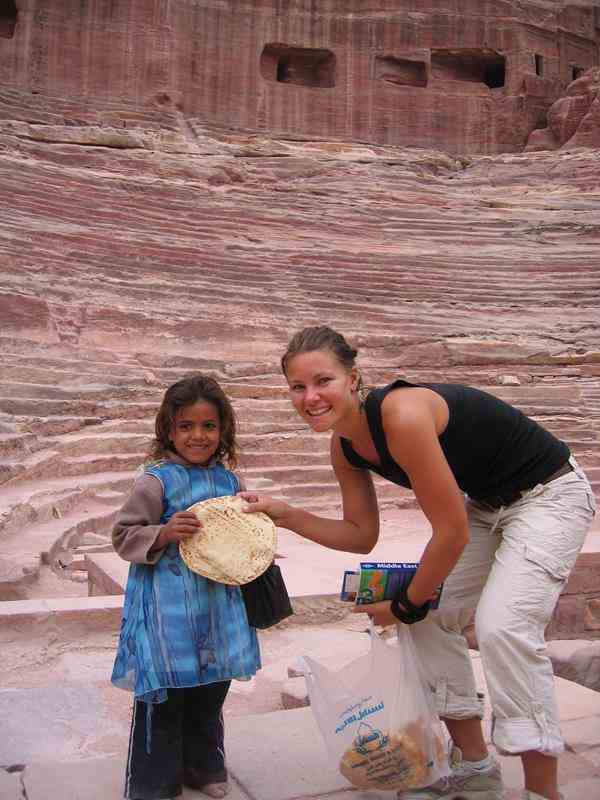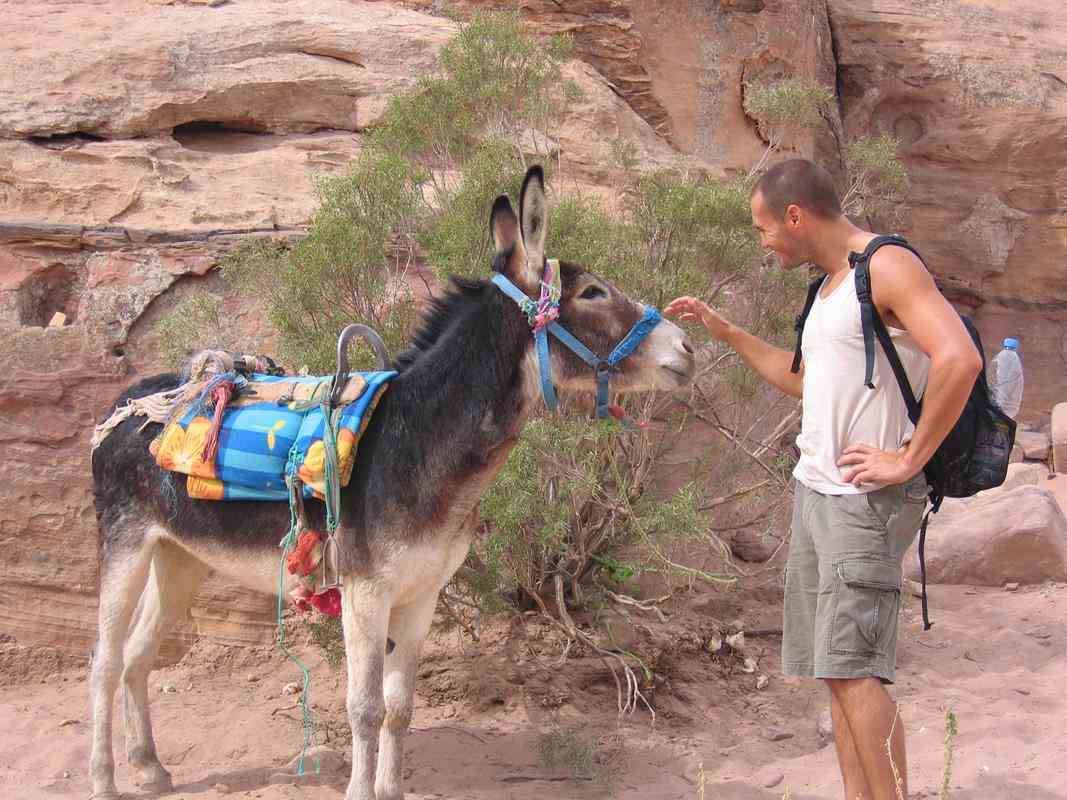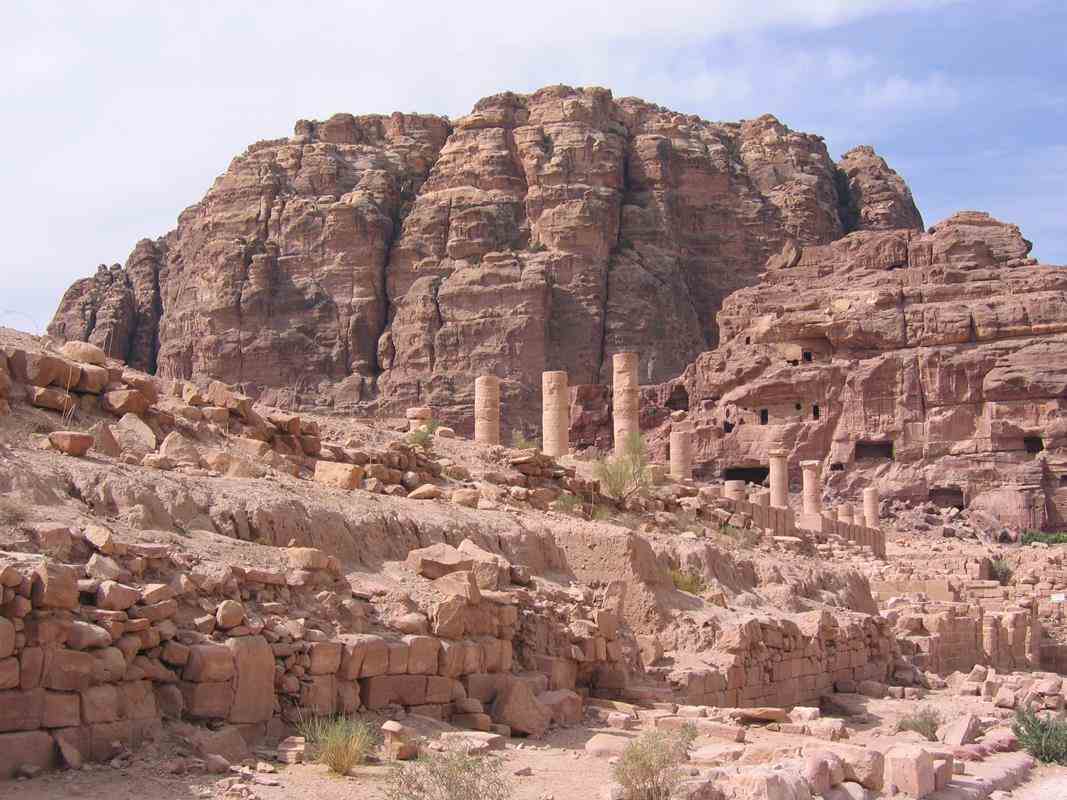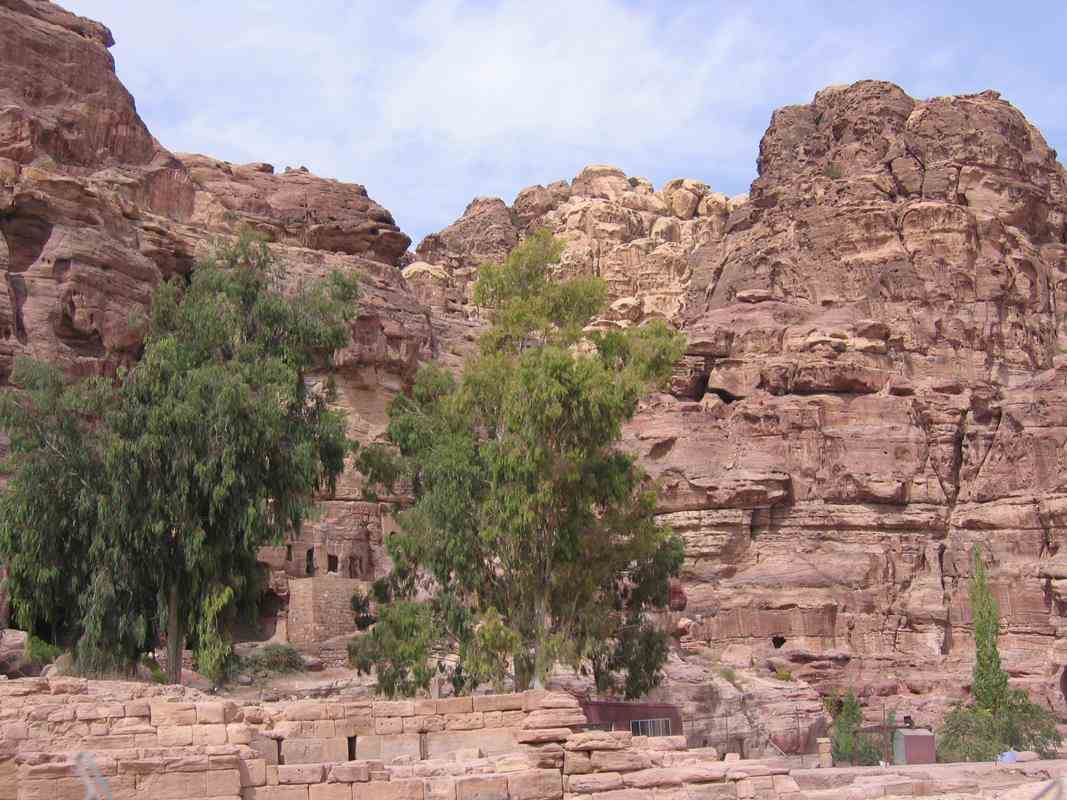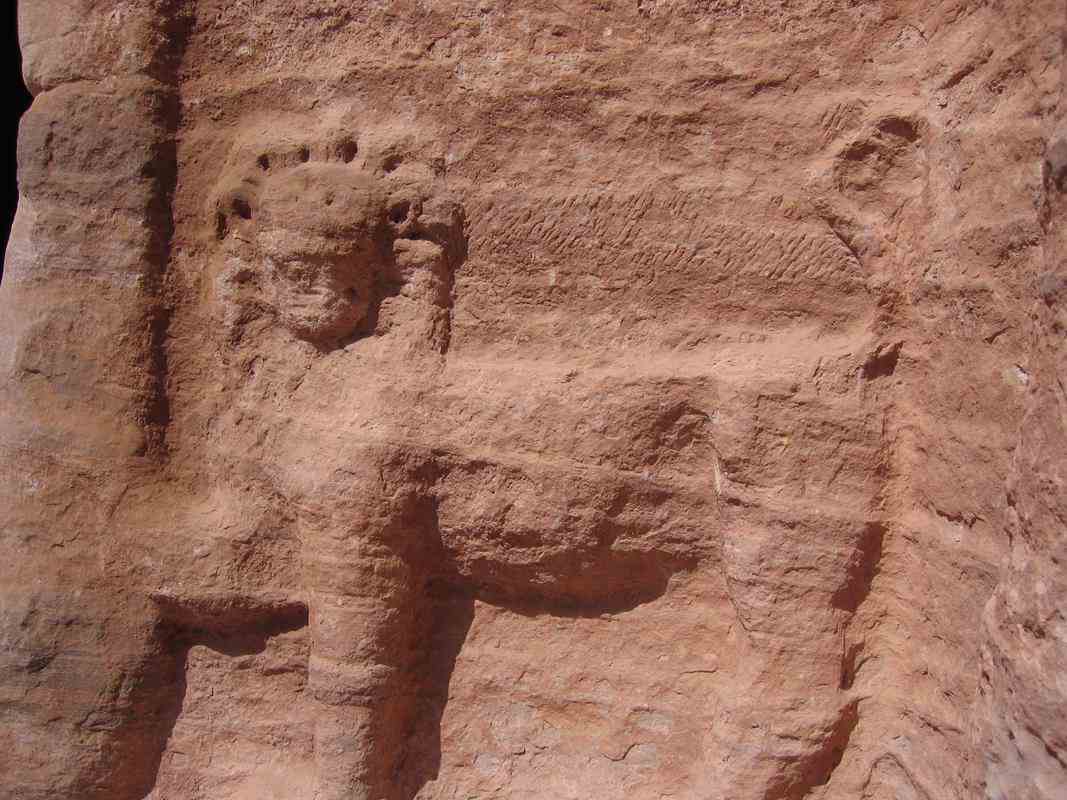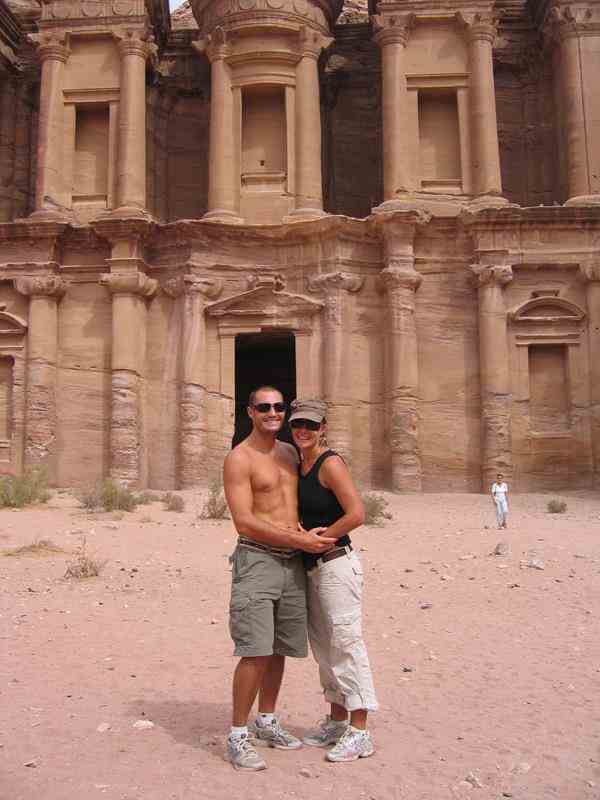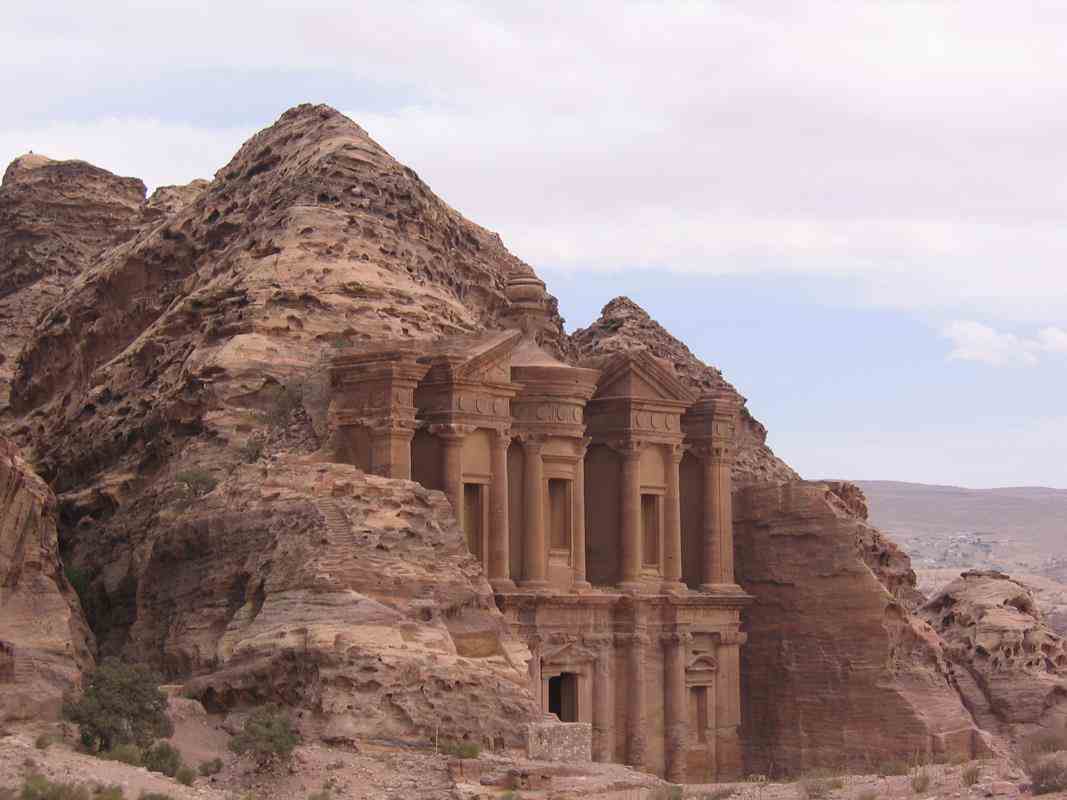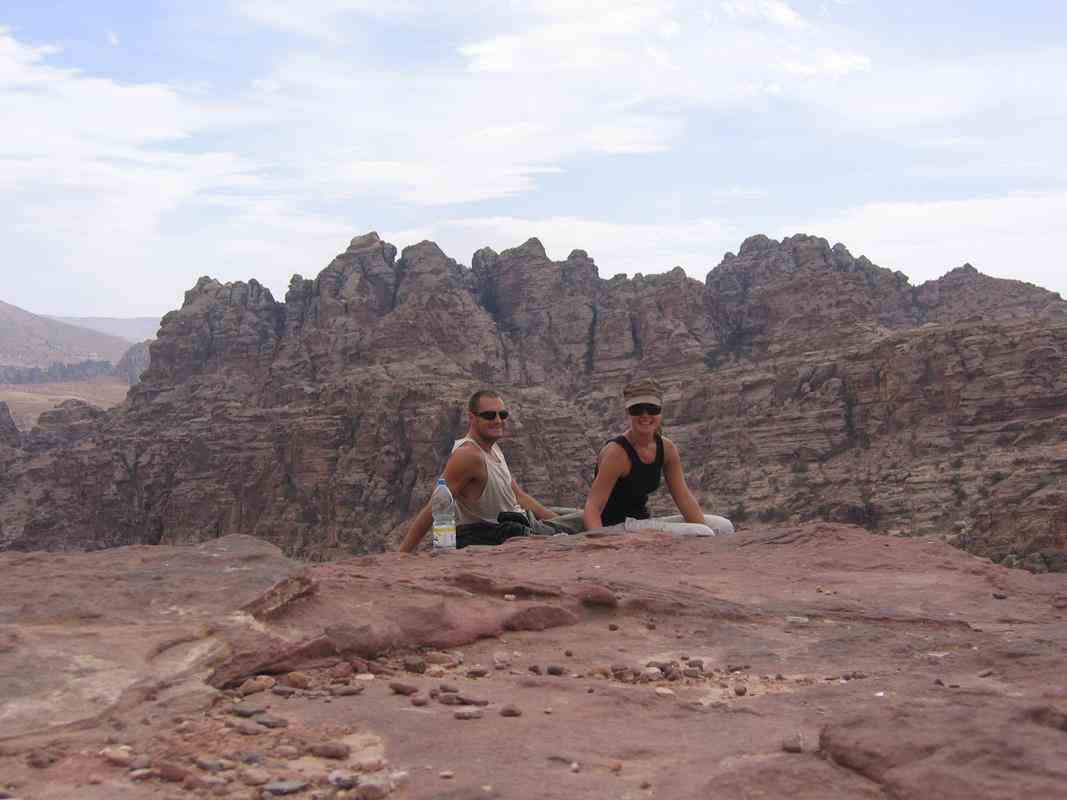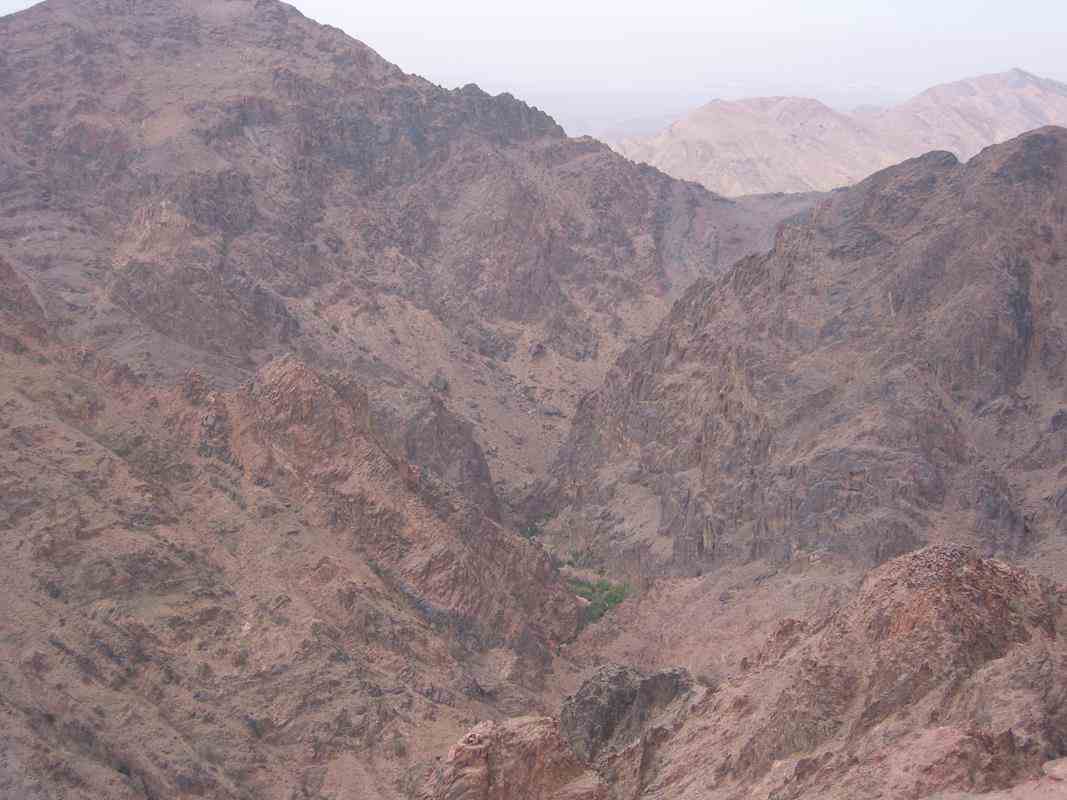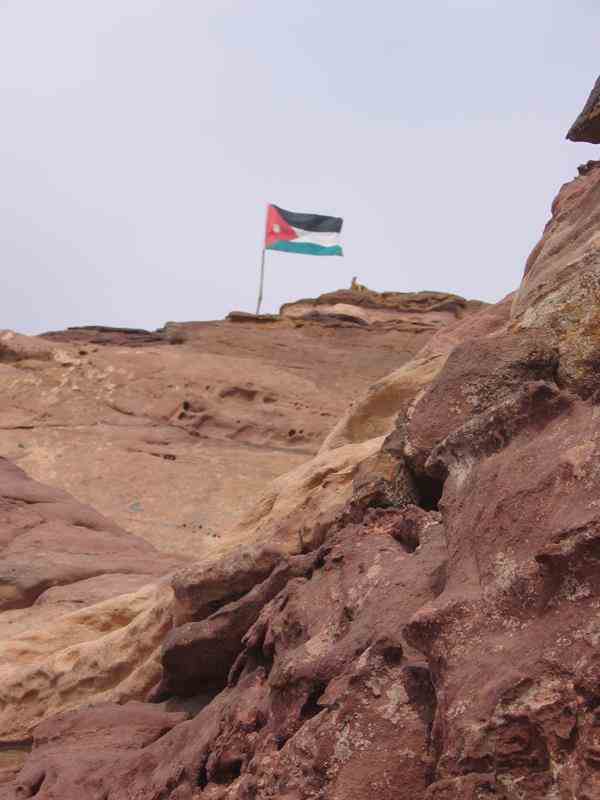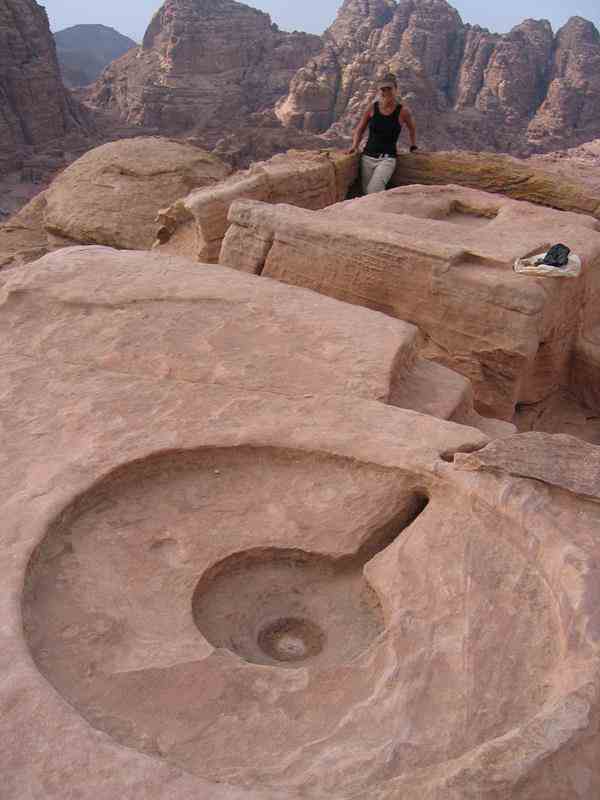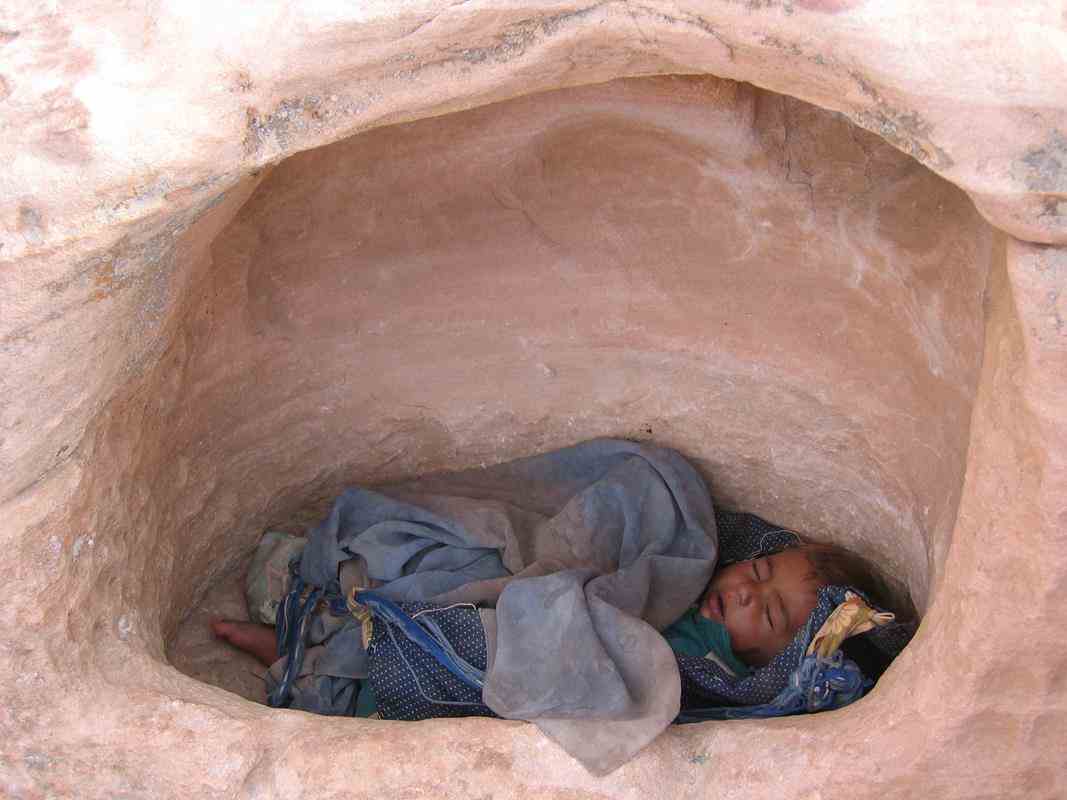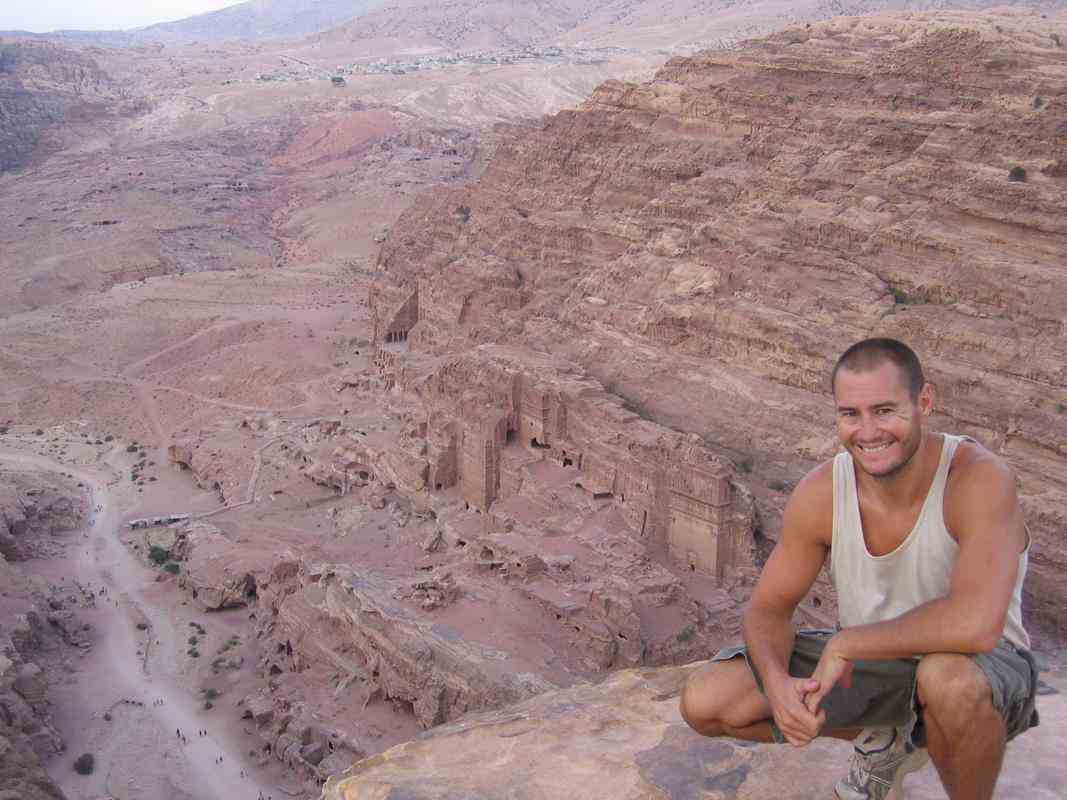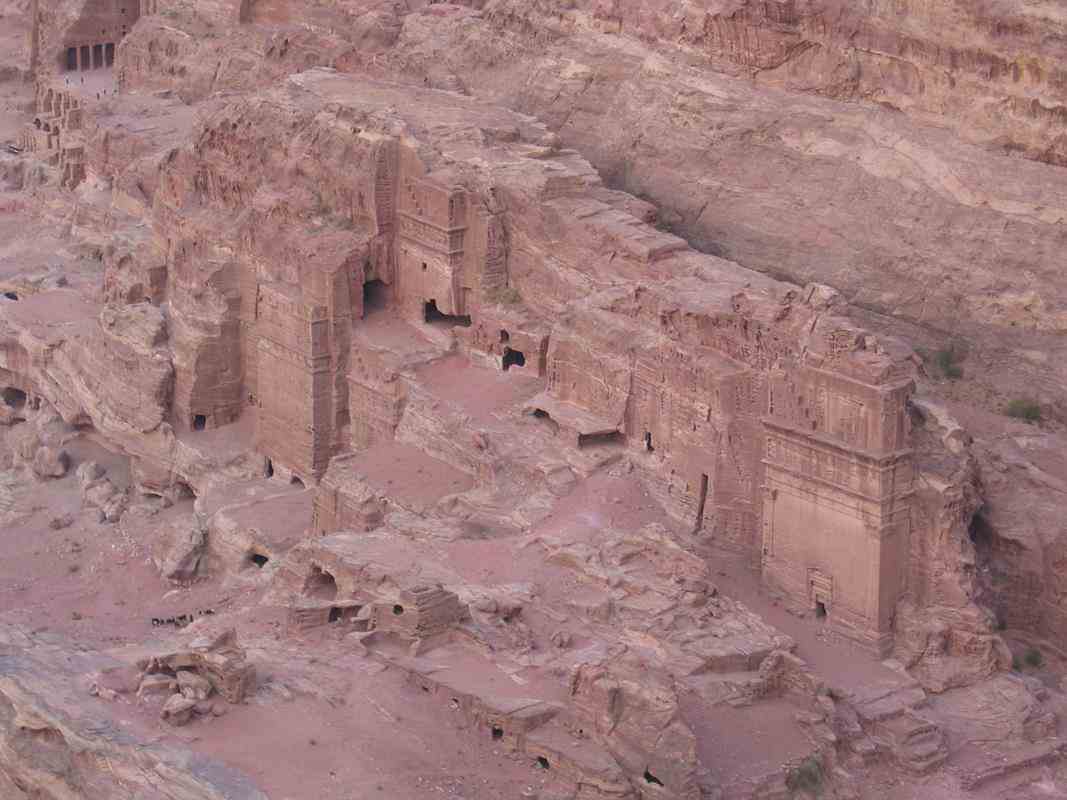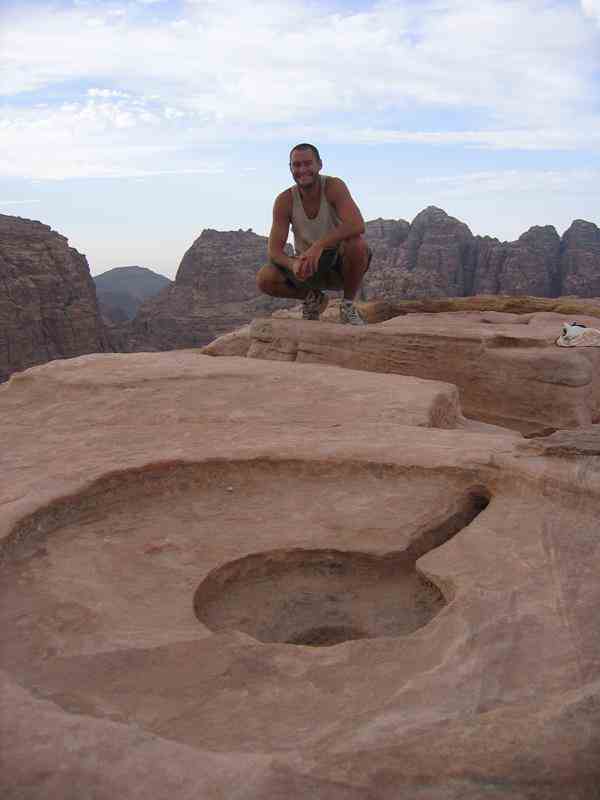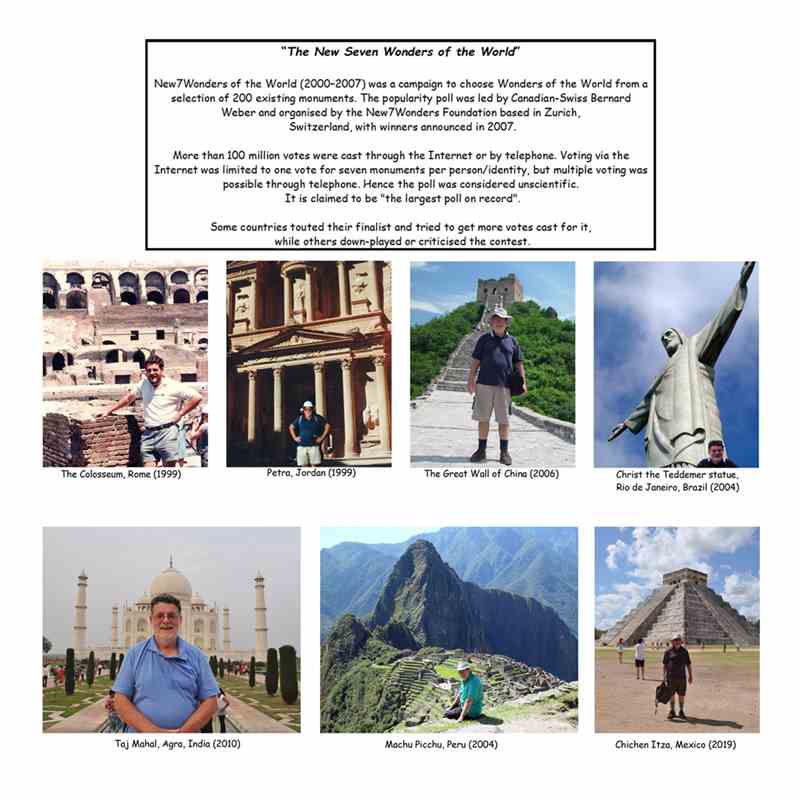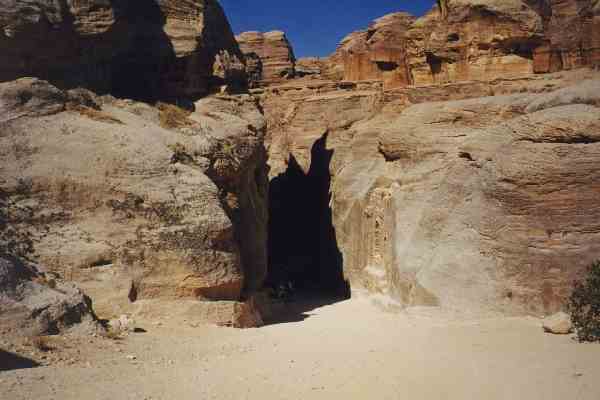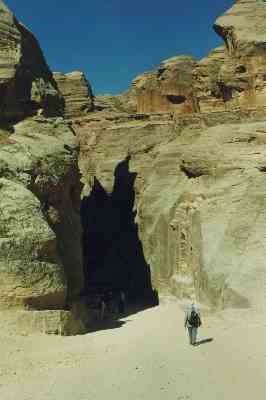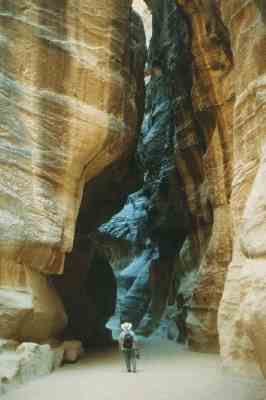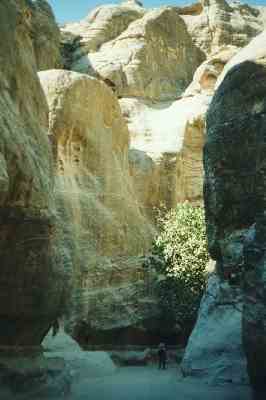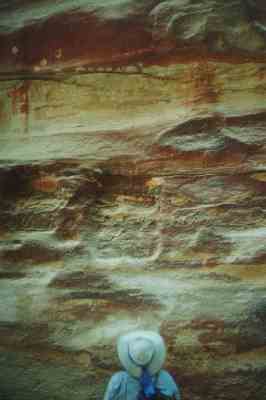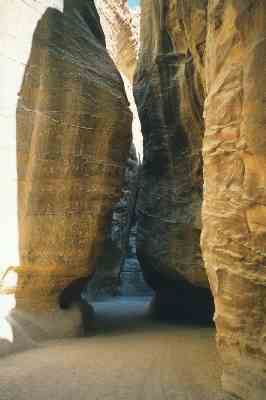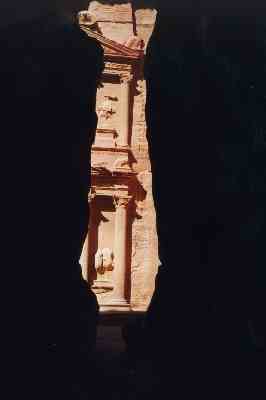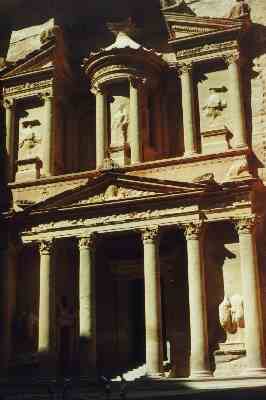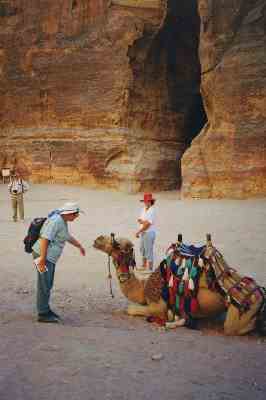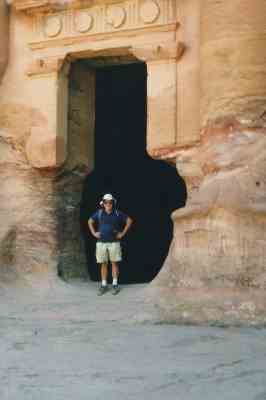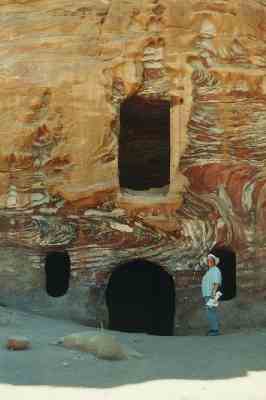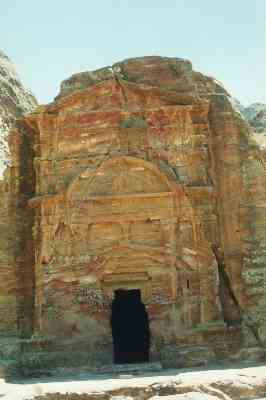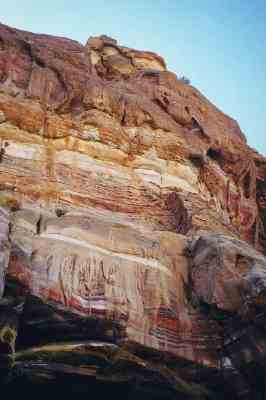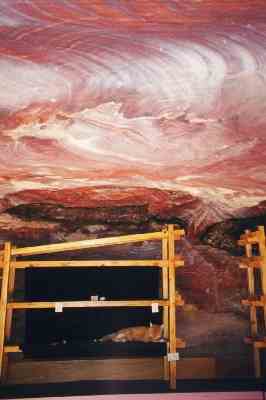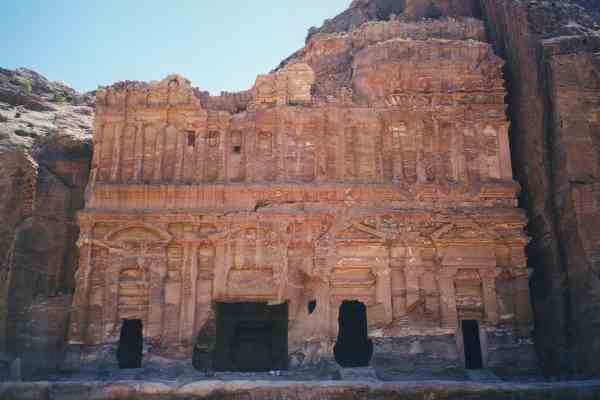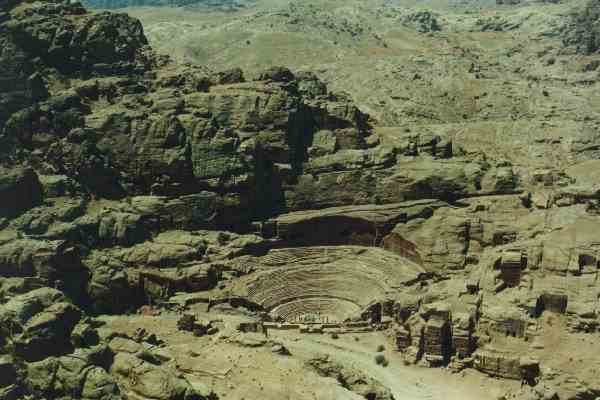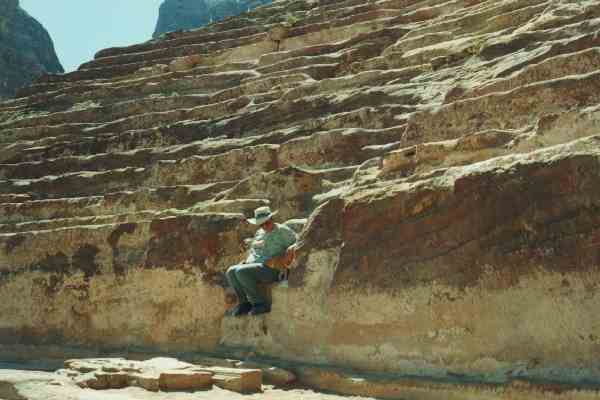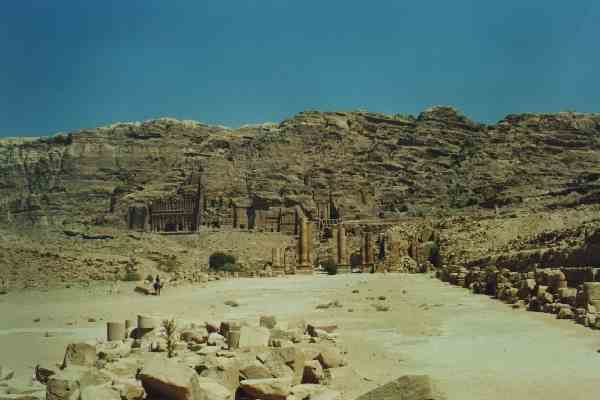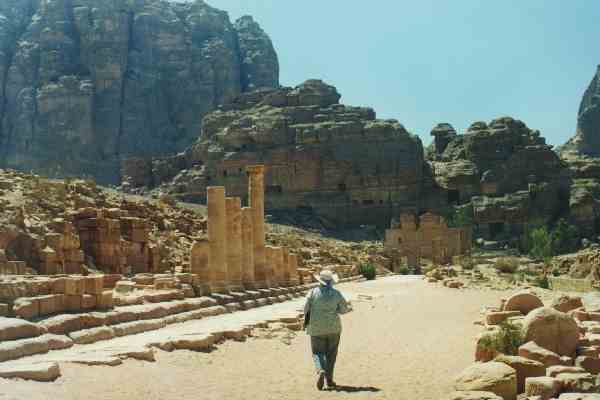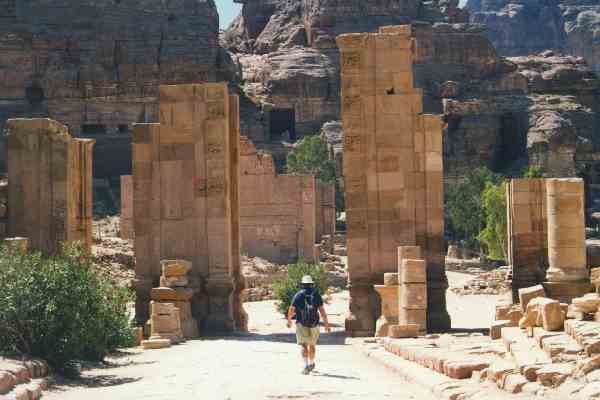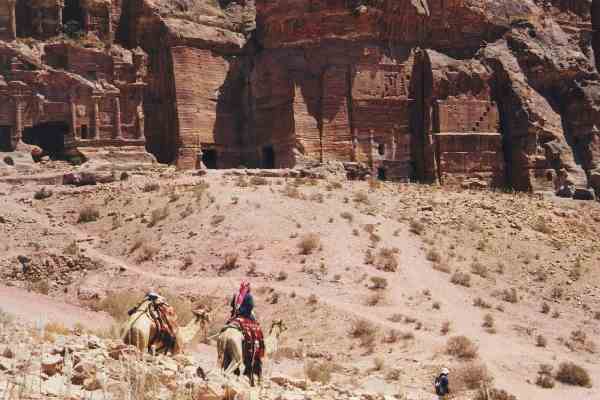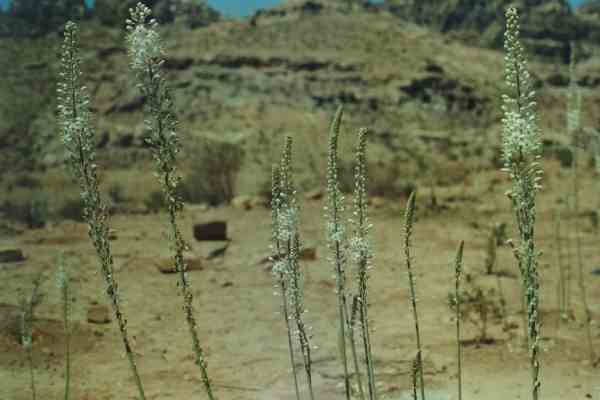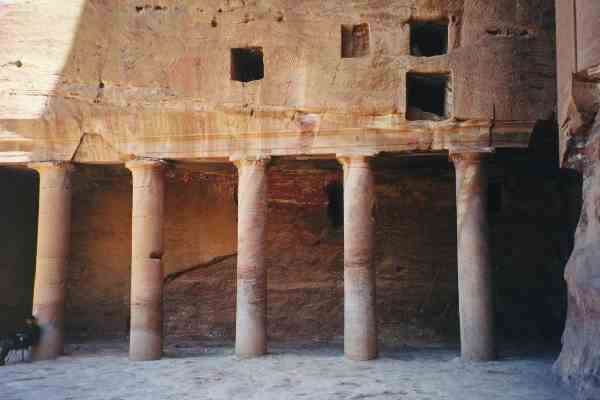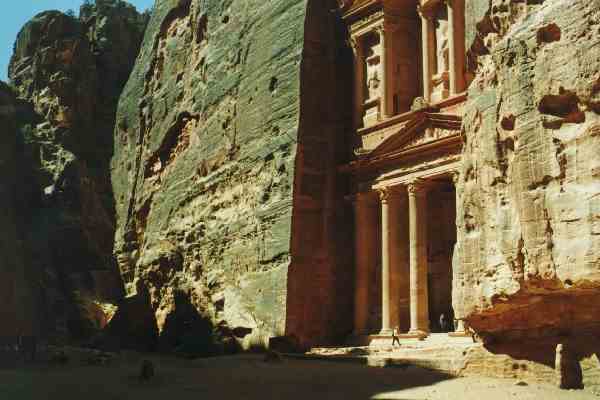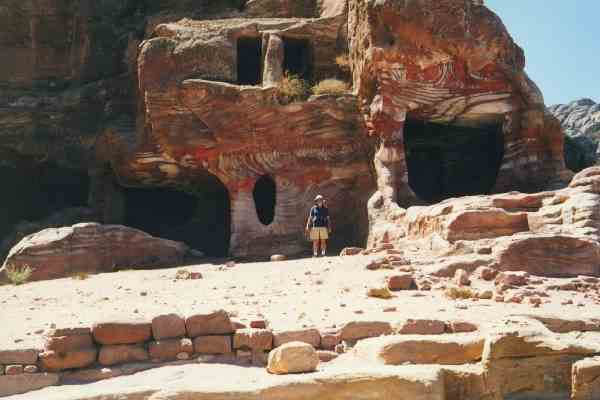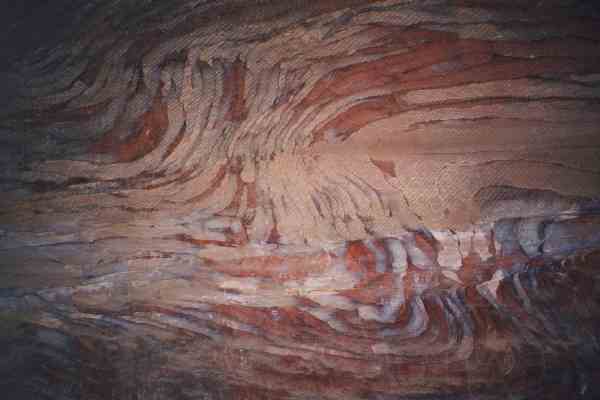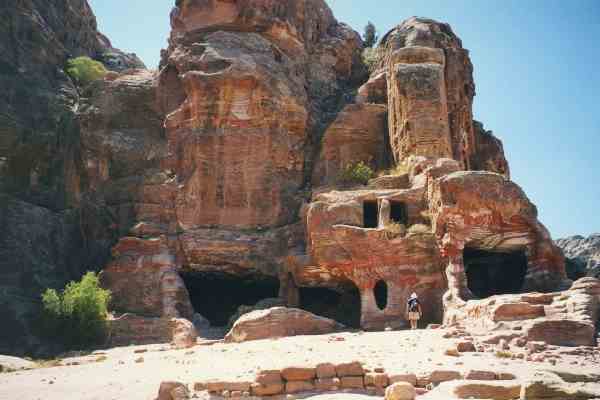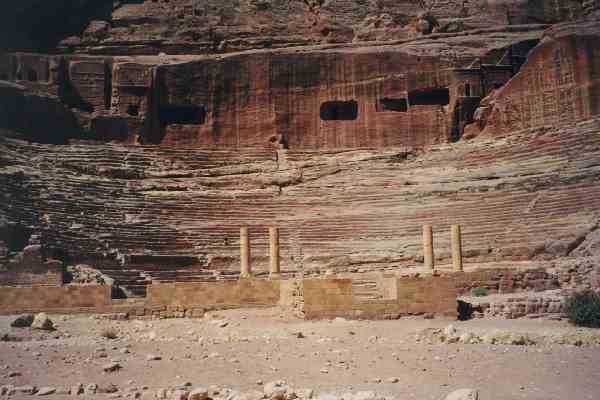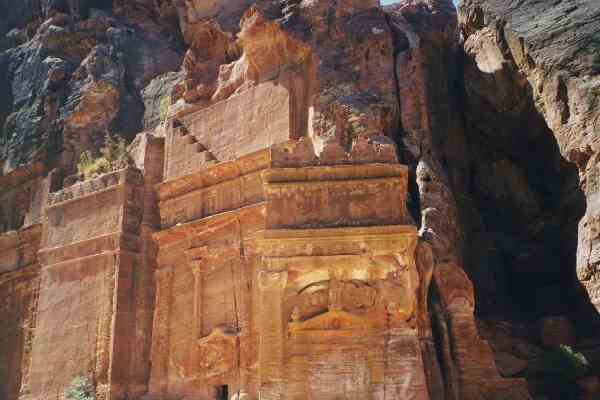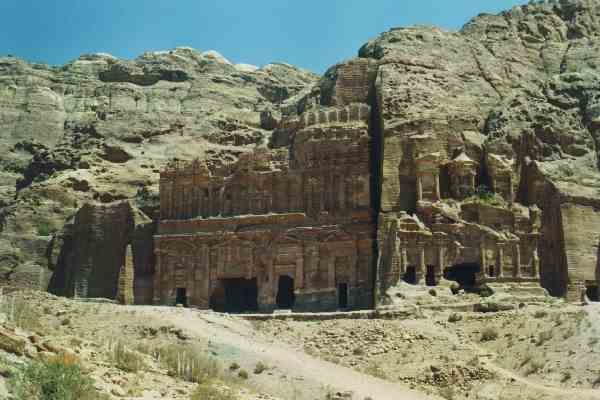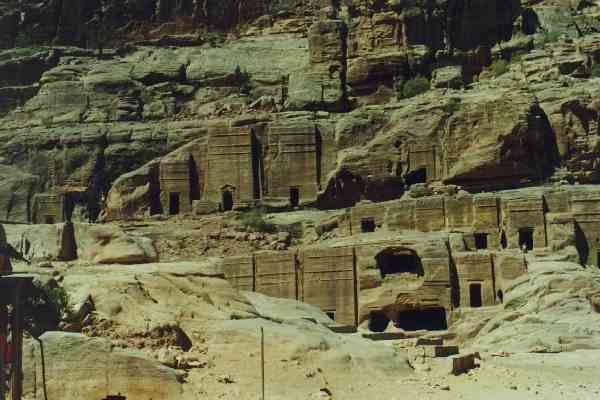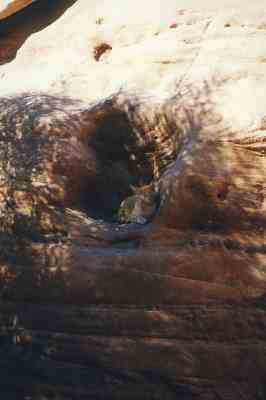Petra is a historical and archaeological site in southern Jordan.
It is believed to have been settled as early as 9,000 BC,
and it was possibly established in the 4th century BC as the capital city of the Nabataean Kingdom.
The Nabataeans were nomadic Arabs who invested in Petra's proximity to the trade routes
by establishing it as a major regional trading hub.
We visited Petra in September 1999 during our 14-week around-the-world trip.
|
|
The entrance to the Siq. The Siq is an incredible 1.2km long narrow chasm.
|
|
Margaret about to enter the Siq. It is one of the great walks of the world. |
|
|
|
Inside the Siq. An amazing chasm with high walls with lots of colour. |
|
|
|
|
|
The colourful walls inside the Siq. |
|
A lovely walk in the pleasant cool of the morning. |
|
|
|
At the end of the walk through the Siq, The Treasury comes into view. The first glimpse is breathtaking. The Treasury is world famous because of the Indiana Jones "The Last Crusade" movie. |
|
The Treasury. The urn at the top of this monument was believed to hold countless treasures, gold and precious jewels; hence the monuments name. |
|
|
|
Making friends with a camel. The exit from the Siq is in the background. |
|
The entrance to The Urn Tomb. |
|
|
|
Colourful rocks outside the tomb entrance. |
The trading business gained the Nabataeans considerable revenue and Petra became the focus of their wealth, drawing the envy of its neighbors.
The earliest recorded historical reference to Petra was when the Greek Antigonids raided the city in 312 BC.
The Nabataeans were, unlike their enemies, accustomed to living in the barren deserts, and were able to repel attacks by utilizing the area's mountainous terrain.
They were particularly skillful in harvesting rainwater, agriculture and stone carving.
Petra flourished in the 1st century AD when its population peaked at an estimated 20,000 inhabitants.
|
|
Petra is the ruined capital of the Nabataeans - Arabs who dominated the Transjordan area in pre-Roman times. They carved these elaborate buildings and tombs out of the solid rock. |
|
Colourful rocks at Petra, Jordan. |
|
|
|
Petra, Jordan. A cat in a cave with a colourful ceiling. The ultra clean toilets in a nearby cave likewise had colourful ceilings. |
|
|
|
|
|
The Theatre. Built by the Nabataeans, the 7000 seat amphitheatre was enlarged and used by the Romans. |
|
|
As soon as Margaret sat down in the Theatre, a cat came and sat beside her. |
|
|
Petra is a very extensive site. A view of some of the elaborate buildings carved out of the rock. |
|
|
Walking in the Colonnaded Street. This was the heart of the old city. It was once a bustling marketplace lined with shops and houses. |
|
|
This spectacular city was built in the 3rd century BC by the Nabataeans. From here they commanded the trade routes from Damascus to Arabia, and through here the great spice, silk and slave caravans passed. |
|
|
This lost city was forgotten by the outside world for 1000 years. It was rediscovered in 1812 by John Burckhardt, a Swiss adventurer, disguised as a devout Moslem. Excavations commenced in 1929 and the central city was not uncovered until after 1958. |
|
|
There were lots of sea squill flowers everywhere. They grow extensively in the Middle East and the Greek Islands. |
|
Some classical authors refer to a people called the "Nabatu," situated along the western edge of the Arabian Peninsula, who had failed as pirates in the Red Sea and made their way northward along the coast. The Nabatu may have represented a confederacy of nomadic or semi-nomadic tribes, rather than a single group. At Petra, the southernmost stronghold of the biblical Edomites, the wandering Nabatu finally found a refuge. It was an opportunity to adopt a more permanent, secure, and economically rewarding lifestyle. |
|
|
|
The Khazneh (Treasury), probably Petra's most recognizable sight, was featured in the movie Indiana Jones and the Last Crusade. The Khazneh is Petra's best preserved monument and stands 130m tall and 90m wide. |
|
|
Conservative biblical scholars hold that Petra (in Greek it means rock, in Hebrew Sela and Seirmean hairy, home of the hairy Esau) will be the city of deliverance, the defensible hiding place for the deliverance of the people of Israel. |
|
|
|
|
|
Modern engineers say the Nabataeans were "absolute geniuses" at controlling rainwater to prevent flooding and to avoid shortages in times of drought. |
|
|
Some of the tombs have colorful interiors. Splashes and swirls of magenta, midnight blue and ochre create pictures on the walls and ceilings that rival paintings in the finest museums. But the "masterpieces" are solely due to the natural colors of the sandstone. |
|
|
|
|
|
Accessible only through a narrow gorge, Petra was one of the easiest to defend cities of the ancient world. Its leaders became rich through trade, good water management and by exacting tolls from caravans. |
|
|
|
|
|
A cosy place for a cat. |
Our son Ben, and his
girl-friend (now his wife) Crystal, visited Petra in 2006.
Crystal has been a
horse-rider since she was a young girl.
They talked a local man into
loaning her his horse so that she could ride through the Siq.
A fantastic
lifetime
memory to cherish.
Here are their photos ...
